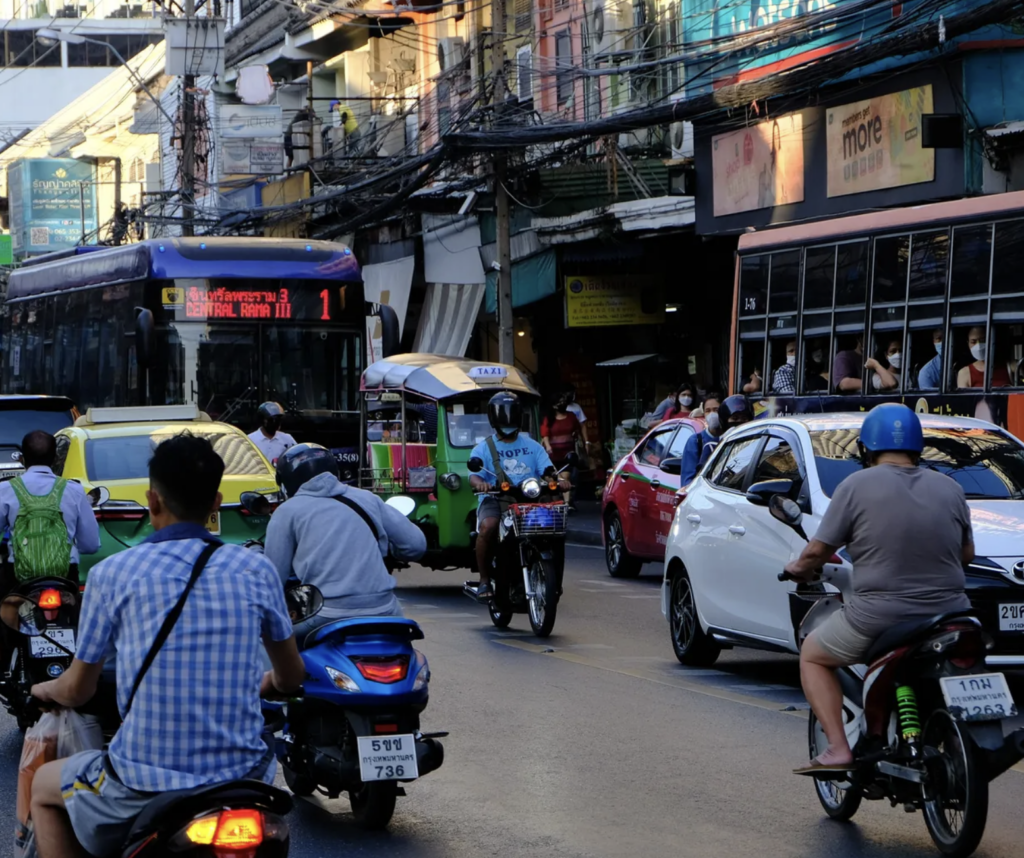Erik Olsson, from the LeadIT secretariat presented a policy briefing exploring the potential operation of carbon markets. Members then heard details about the first ever trade under Article 6 involving Switzerland and Thailand and from the Swedish Energy Agency regarding its approach to Article 6. The speakers were:
- Vicky Janssens, General Manager Southeast Asia, KliK Foundation
- Norasak Suphakorntanakit, representing Energy Absolute & the Bangkok E-Bus Programme
- Erland Kjellén, Policy Adviser, Swedish Energy Agency
How does Article 6 work?
Cooperation under Article 6 can take shape in three forms:
- Article 6.2 – bilateral or multilateral cooperation between countries through projects, programs, or policies that focus on climate change mitigation or reduction of greenhouse gas emissions. The units traded are called Internationally Transferred Mitigation Outcomes (ITMOs)
- Article 6.4 – a crediting mechanism overseen by a UN Supervisory Body. Article 6.4 shares similarities with carbon trading under the Kyoto Protocol. As of 2024, 6.4 is not yet operational.
- Article 6.8 – a non-market-based instrument and a results-based funding approach focusing on capacity building and technology transfer that does not involve the creation or transfer of tradeable emission credits.
Article 6 Case Study – the Bangkok e-bus programme

The first and, to date only, trade of ITMOs under Article 6.2 took place in December 2023 between Thailand and Switzerland.
Vicky Janssens from the KliK Foundation explained its role in the process under a mandate bound to the Swiss climate legislation, which currently runs until 2030. KliK Foundation acts on behalf of Swiss motor fuel importers. ITMOs that it sources from activities implemented in the host country are used by the Swiss Government to fulfil its nationally determined contributions (NDC) target under the Paris Agreement. For consideration activities must be:
- Additional to the host country’s unconditional NDC
- Financially viable only with carbon revenue from ITMOs
- Not already implemented
- Large mitigation activities
In addition, some technology restrictions apply (based on the Swiss CO2 Act and the conditions of thehost countries) and activities are not directly funded (KliK Foundation’s financial support mechanism is result-based). The activity financially supported by this first trade under Article 6 was to provide residents of Bangkok with electric buses.
Norasak Suphakorntanakit, representing Energy Absolute who are the owners of the Bangkok E-Bus Programme explained that a lack of public subsidy for more expensive electric buses and the need to maintain fares for passengers made this project a candidate for carbon revenue under Article 6. A fleet of up to 4,000 electric buses will be launched in exchange of petrol-fueled vehicles.
Article 6 the Swedish perspective – “not just the low hanging fruit”
Erland Kjellén is a Policy Adviser with the Swedish Energy Agency and described its approach to Article 6 as a potential means of raising emissions reduction ambition in both the buyer and seller countries. For buyers there’s the possibility of creating emissions reduction for less money and for the seller they can benefit from investments in green technologies. It is, he said not about the “low hanging fruit” but aiming for the “high hanging fruit” and going beyond the projected business as usual scenario to support programmes that deliver additional benefits.

Through the Swedish Energy Agency, Sweden has signed Memoranda of Understanding with three countries for cooperation under Article 6 of the Paris Agreement – Ghana, Nepal and Dominican Republic. It is also working with international organisations to facilitate the implementation of Article 6 collaborations. In addition, a working group looking at carbon markets has been established under the India Sweden Industry Transition Partnership (ITP).
What is needed to make Article 6 work?
COP28 many questions remain around Article 6 and although there is now a Supervisory Body it seems the full operation of Article 6.4 may be delayed until 2026. This in turn affects countries without institutional capacity to engage in Article 6.2. Added to which there is still lingering uncertainty around the interpretation of Article 6.2 itself.
- binding texts among the Parties to the Paris Agreement
- ensuring environmental integrity
- clear signals of commitment and facilitation from Governments
- addressing the risk of overselling
As of March 25th, 2024, there are 81 bilateral agreements between 9 different buyers and 46 host countries (UNFCCC,2024). The first transfer of ITMOs occurred in December 2023 between Thailand and Switzerland. Currently, Japan and Switzerland have incorporated the use of ITMOs in their NDCs, and others including Sweden are piloting acquisition of ITMOs without the intention of using them towards their NDCs.

